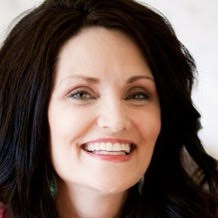How the people pleasing false self develops. 
Was saying “No” to mom simply not an option?
“No mom, I don’t want that.”
“No mom, I’d rather not do that.”
“No mom, I can’t help you with that.”
If it wasn’t acceptable to be your real self with mom you needed to develop a faux or false self. A mask you wear to mom and now to the rest of the world. Because the relationship with mom is so foundational you don’t trust anyone can accept you for who you really are.
Particularly vulnerable are daughters of Narcissistic/Difficult mothers. They often develop in childhood what Alice Miller calls a “false self”. This false self-develops to cope with the demands of being raised by a mother who needs her daughter to be better than she is.
Instead of feeling unconditional acceptance from her mother, the daughter’s false self-knows exactly what is expected of her and strives to please mom at the expense of her authentic self.
The false self is approval seeking, people pleasing and dangerously detached from the essential/authentic self. To break free, she must first know what purpose the false self-serves.
Learn more here- ( remember to click on CC to read with the sound off)
Transcription
How people can develop a false self early in childhood and become detached from their authentic feelings. One concept that comes up a lot when I’m talking to women is Alice Miller’s concept of the “false self.” This is formed in childhood when your authentic needs and impulses are responded to by a lot of upset from a parent. Then a parent, because of their own unmet needs, a need for reassurance and validation, inadvertently many times uses the child to be the reassuring or the performing or reassure the parent that they’re a good parent. They need the child to be a hyper-adult, to be finished and more advanced than they can be developmentally. Alice Miller calls this a “false self.” The child develops a people-pleasing false self that looks good on the outside but is really disconnected from the internal developmental needs. A lot of daughters with this false self will be people-pleasers. They will make everybody else happy but not themselves but have a sense of emptiness, of chronic emptiness and disconnection from their real selves. They’ll be taking care of everybody and wonder along the line, “What about me? I’m doing this for my mother or somebody else, and I know it’s what they want from me, but when’s it gonna be my turn?” Many things can happen with this chronic feeling of emptiness. They can drink too much, eat too much, do too much. to fill the emptiness they feel. There are all kinds of offshoots from this disconnect, which is formed in childhood and Alice Miller’s concept of the “false self.” One thing that therapy can certainly do is help get you back in touch with your authentic, real self. You can act from this self more and more and have more satisfying relationships and leave this false self behind. I’m Katherine Fabrizio. Be good to yourself.
Find out if you are trapped in the role of the Good Daughter- go here.
Become Aware. Tweet It Out-
Are You A Chronic People Pleaser? This Could Be Why – ( Hiding behind a False Self) Share on X If it wasn't acceptable to be your real self with mom you needed to develop a faux or false self. Share on X This false self-develops to cope with the demands of being raised by a mother who needs her daughter to be better than she is. Share on X The false self is approval seeking, people pleasing and dangerously detached from the essential/authentic self. Share on X Daughters with a false self many times have a chronic emptiness and disconnection from their real selves. Share on X





Good write up, but I would say it is fairly inaccurate to blame it all on ‘Mom”.
One could develop the need for a false-self through their interactions with their peers, parents, community, etc. (generally and most commonly, the peers and/or caregivers in their early life).
After all, not everyone was even raised with a Mom; or their Mothers were not their primary caregivers?
(and even in the cases where they had an old fashioned ‘typical’ Family dynamic [Mother/Father/Children], then the above is still true.
Jason,
Thanks for weighing in. I agree with you that not all false-self adaptations are because of Mom. Goodness, women especially have been socialized to be pleasing by well everyone. Thanks for making that point.